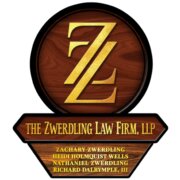Best Insurance Fraud Lawyers in Kansas
Share your needs with us, get contacted by law firms.
Free. Takes 2 min.
Or refine your search by selecting a city:
List of the best lawyers in Kansas, United States
About Insurance Fraud Law in Kansas, United States
Insurance fraud in Kansas involves the act of intentionally deceiving an insurance company or agent in order to receive benefits or monetary gains to which one is not entitled. This crime can occur in various forms, ranging from exaggerating claims and staging accidents to providing false information on insurance applications. Insurance fraud is a serious offense in Kansas, as it not only impacts insurance companies but also increases premiums and costs for policyholders across the state. Both individuals and businesses can be investigated, charged, and prosecuted for insurance fraud under Kansas law.
Why You May Need a Lawyer
Legal assistance is often necessary when facing any situation related to insurance fraud, whether you are accused, under investigation, or a victim. Common scenarios requiring legal help include:
- Being formally charged with insurance fraud
- Receiving notices of investigation from insurance companies or law enforcement
- Facing denial of a legitimate insurance claim under suspicion of fraud
- Needing to defend your business or employees from fraud allegations
- Unintentionally providing incorrect information to an insurer
- Wanting to report suspected fraud and understanding legal protections
A lawyer experienced in Kansas insurance fraud law can help protect your rights, ensure you are treated fairly, and help you navigate complex proceedings, whether criminal or civil.
Local Laws Overview
Kansas has several state laws and statutes relevant to insurance fraud. Under Kansas Statute 21-5812, insurance fraud is defined and prosecuted as a crime. It covers acts such as knowingly presenting false statements, inflating claims, or submitting fake documents with the intent to defraud an insurance company. Penalties depend on the value of the claim and can include fines, restitution, and incarceration. Kansas law also requires insurance companies to implement anti-fraud plans and report suspicious acts to the Kansas Insurance Department’s Anti-Fraud Division. Reporting insurance fraud is encouraged and protected by law, and whistleblowers may receive certain legal protections.
Frequently Asked Questions
What exactly is considered insurance fraud in Kansas?
Insurance fraud occurs when a person intentionally provides false information, omits facts, or commits deceptive acts to obtain benefits or payments from an insurance company to which they would not otherwise be entitled.
What are some examples of insurance fraud?
Common examples include staging car accidents, exaggerating injuries, inflating repair estimates, submitting false medical records, or providing incorrect details on insurance applications.
Is insurance fraud a felony or misdemeanor in Kansas?
Depending on the amount involved, insurance fraud can be prosecuted as either a misdemeanor or a felony. Larger or repeated fraud usually leads to felony charges.
What are the penalties for insurance fraud in Kansas?
Penalties vary, but may include substantial fines, restitution, probation, and possible imprisonment for serious or repeated offenses.
Can I be accused of insurance fraud by mistake?
Yes, errors in paperwork or misunderstandings can sometimes trigger fraud investigations. It is important to consult with an attorney if you believe you are being wrongly accused.
What should I do if I am under investigation for insurance fraud?
Contact an experienced insurance fraud attorney immediately. Do not communicate with investigators or insurance companies until you have legal advice.
Can insurance fraud charges be dropped or reduced?
Depending on the facts, a skilled attorney may be able to get charges dismissed or reduced, especially if there was a lack of intent to defraud or insufficient evidence.
How long does the insurance fraud investigation process take?
The length of investigations varies, as insurers and law enforcement may take weeks or months to gather evidence and make charging decisions.
Can a victim of insurance fraud take civil action?
Yes, victims may seek civil remedies in addition to any criminal penalties against the perpetrator. This can include compensation for losses and additional damages.
What should I do if I suspect someone else of insurance fraud?
You can report suspected fraud to the Kansas Insurance Department’s Anti-Fraud Division anonymously if you prefer. Be prepared to provide detailed information to assist investigators.
Additional Resources
If you need more guidance or wish to report insurance fraud, consider these key organizations and resources in Kansas:
- Kansas Insurance Department - Anti-Fraud Division
- Kansas Attorney General’s Office
- National Insurance Crime Bureau (NICB)
- The local Bar Association or referral services
- Legal aid organizations for low-income residents
Next Steps
If you believe you need legal assistance regarding insurance fraud in Kansas:
- Gather all relevant documents, correspondence, and records related to your insurance matter
- Make notes about what happened, including dates and names of involved parties
- Contact a qualified Kansas insurance fraud attorney for a consultation
- Follow your attorney’s advice about communicating with insurers or investigators
- Consider reporting suspected fraud using the resources mentioned above if you are the victim or witness
Prompt action and experienced legal guidance can make a major difference in the outcome of an insurance fraud case. Do not delay in seeking legal help if you are involved in or impacted by insurance fraud in Kansas.
Lawzana helps you find the best lawyers and law firms in Kansas through a curated and pre-screened list of qualified legal professionals. Our platform offers rankings and detailed profiles of attorneys and law firms, allowing you to compare based on practice areas, including Insurance Fraud, experience, and client feedback.
Each profile includes a description of the firm's areas of practice, client reviews, team members and partners, year of establishment, spoken languages, office locations, contact information, social media presence, and any published articles or resources. Most firms on our platform speak English and are experienced in both local and international legal matters.
Get a quote from top-rated law firms in Kansas, United States — quickly, securely, and without unnecessary hassle.
Disclaimer:
The information provided on this page is for general informational purposes only and does not constitute legal advice. While we strive to ensure the accuracy and relevance of the content, legal information may change over time, and interpretations of the law can vary. You should always consult with a qualified legal professional for advice specific to your situation.
We disclaim all liability for actions taken or not taken based on the content of this page. If you believe any information is incorrect or outdated, please contact us, and we will review and update it where appropriate.
Browse insurance fraud law firms by city in Kansas
Refine your search by selecting a city.











